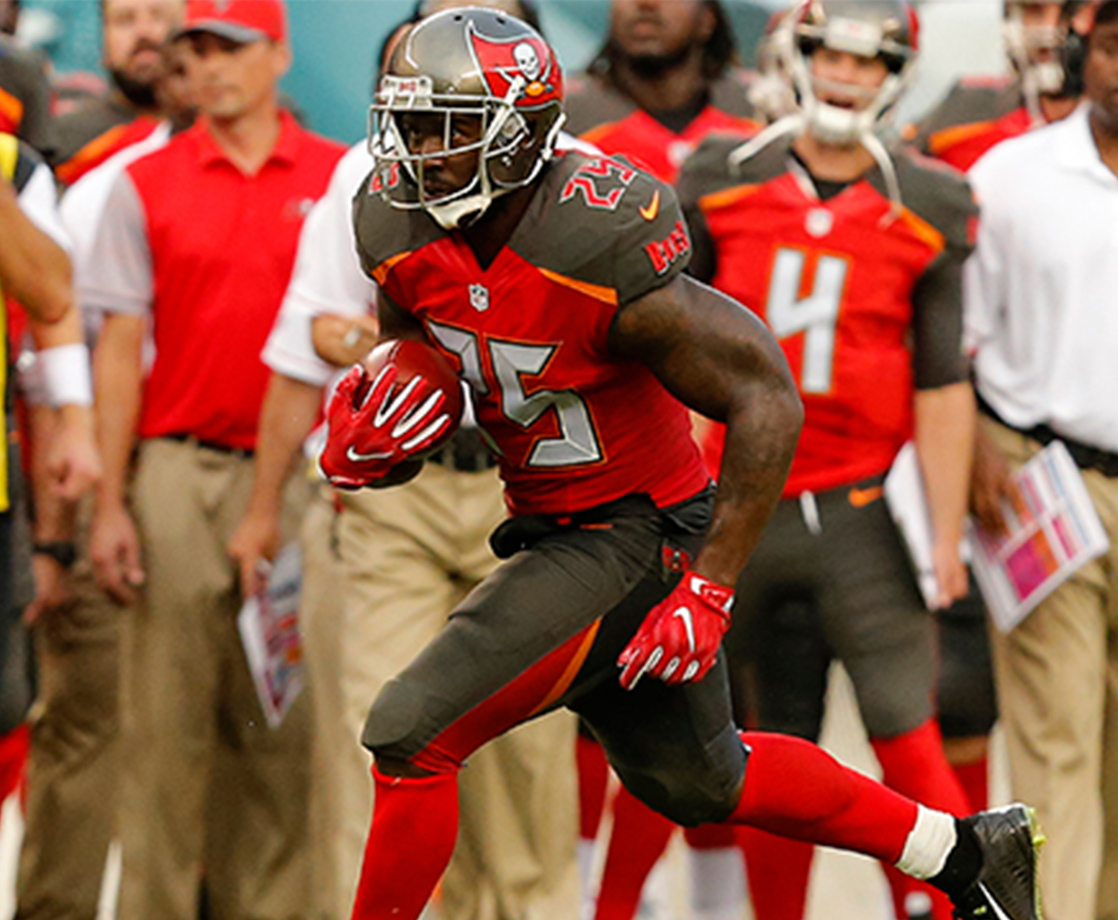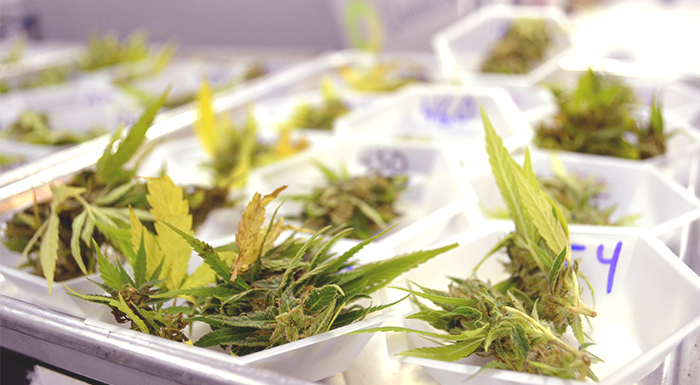Lead image via
On the gridiron and in life, Mike James has always beat the odds. Hailing from a single-parent household in Davenport, Florida, James is one of the select few who made it through the fire and flames of youth and college football to the professional ranks. And when an ankle injury early in his career handed James yet another trial-by-fire — an unexpected addiction to prescription opioid painkillers — the hard-nosed running back confronted it head on, with the help of cannabis.
Now, with the NFL offseason in full swing and players gearing up for training camp, pre-season, and yet another grueling 16 games, James, a free agent, is challenging the league's anti-cannabis status quo. According to CNN, last month, James became the first player in league history to request an official "therapeutic use exemption" from the NFL's substance abuse policy, which bans cannabis entirely.
While playing with the Tampa Bay Buccaneers in 2013, James suffered a broken ankle and was sidelined for the entire season. Like most people suffering from severe pain, athlete or civilian, James was prescribed a litany of opioid painkillers and sent home. And like so many both before and after him, it didn't take long for James to become dependent on the deadly pills.
In an interview with Dr. Sanjay Gupta for the fourth part of his CNN documentary series, Weed, James said that he was only able to find relief from his opioid addiction after his wife convinced him to try medical marijuana years later.
"Suddenly, my pain subsided," James told Gupta. "I never had something where I could be coherent and still have pain relief."
But even with James' opioid addiction sparked by the professional recommendations of a team-employed doctor, the same league structure restricts James from using cannabis, no matter how much relief it brings. So when James was called in to submit a pre-season drug screening last August, he tested positive for weed. Instead of accepting the league's warnings and anti-drug education classes, James pushed back.
Last month, James became the first player in NFL history to submit an official administrative request for exemption from the league's cannabis ban, arguing that he could not perform his on and off-field duties without the plant-based medication.
On Thursday, the league denied James' request, putting the running back's current free agent opportunities and future career in jeopardy.
"This is the first active player who's been willing to put their professional career on the line, to openly admit that they not only have been using this cannabis but need it to function at the highest level," said Dr. Sue Sisley, an Arizona-based physician who made waves by criticizing the federal government's permitted research cannabis as "ditch weed," and also helped James with his exemption application.
Over the past few years, a number of retired NFL players have become increasingly vocal about the benefits of medical marijuana in helping to treat prescription opioid addiction, relieving long term aches and pains, and even combatting the effects of concussions and Chronic Traumatic Encephalopathy (CTE).
Despite the pleas from famous wideouts and defensive ends, paired with wider social science about the positive effects of cannabis on decreasing opioid abuse, the NFL Players Association and Commissioner Roger Goodell have largely ignored medical marijuana. The league has consistently claimed it will look into the plant, while also denying any concrete requests for change. James' refuted drug policy exemption request is just the latest example in that same line of action.
As for James' future prospects in the league, the ball is still up in the air. One thing is certain, though: the running back will continue to advocate for the benefits of cannabis, no matter what the NFL says.
"I'm not ashamed of it," James told CNN. "I'm not embarrassed about it. It is something that I will continue to use, because I have a life to live."
Follow Zach Harris on Twitter











